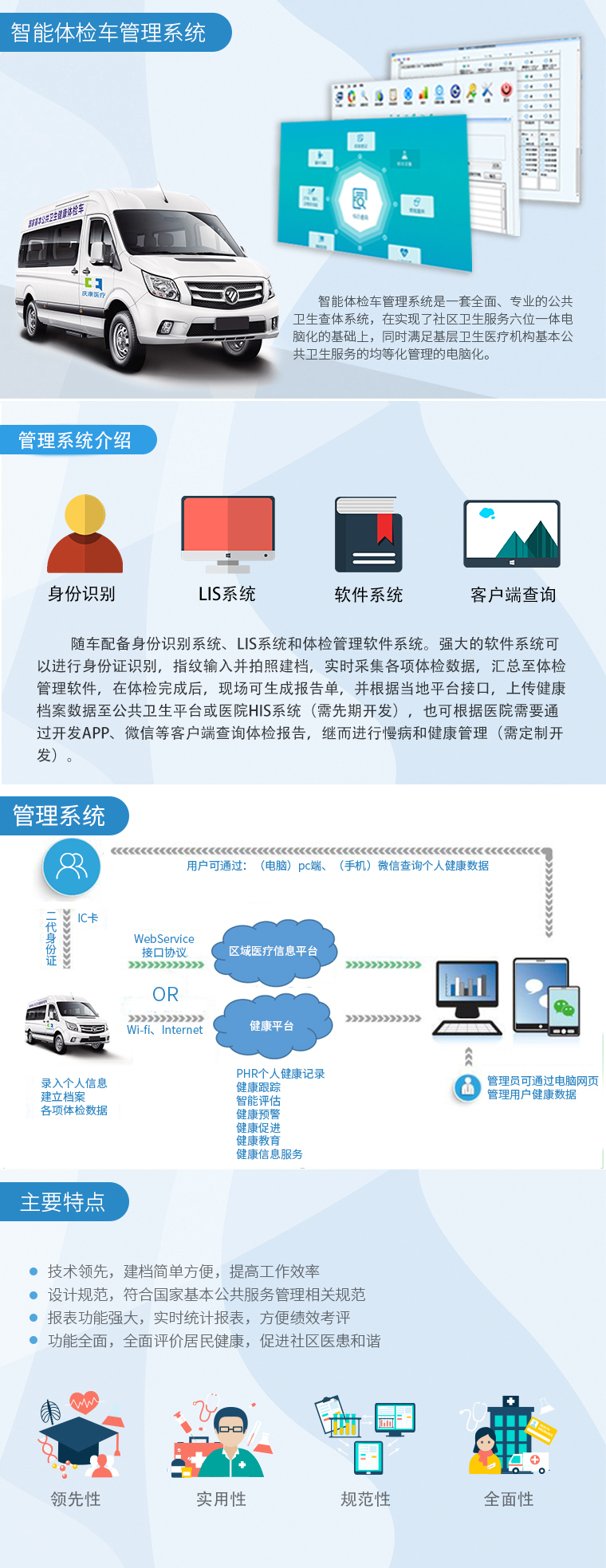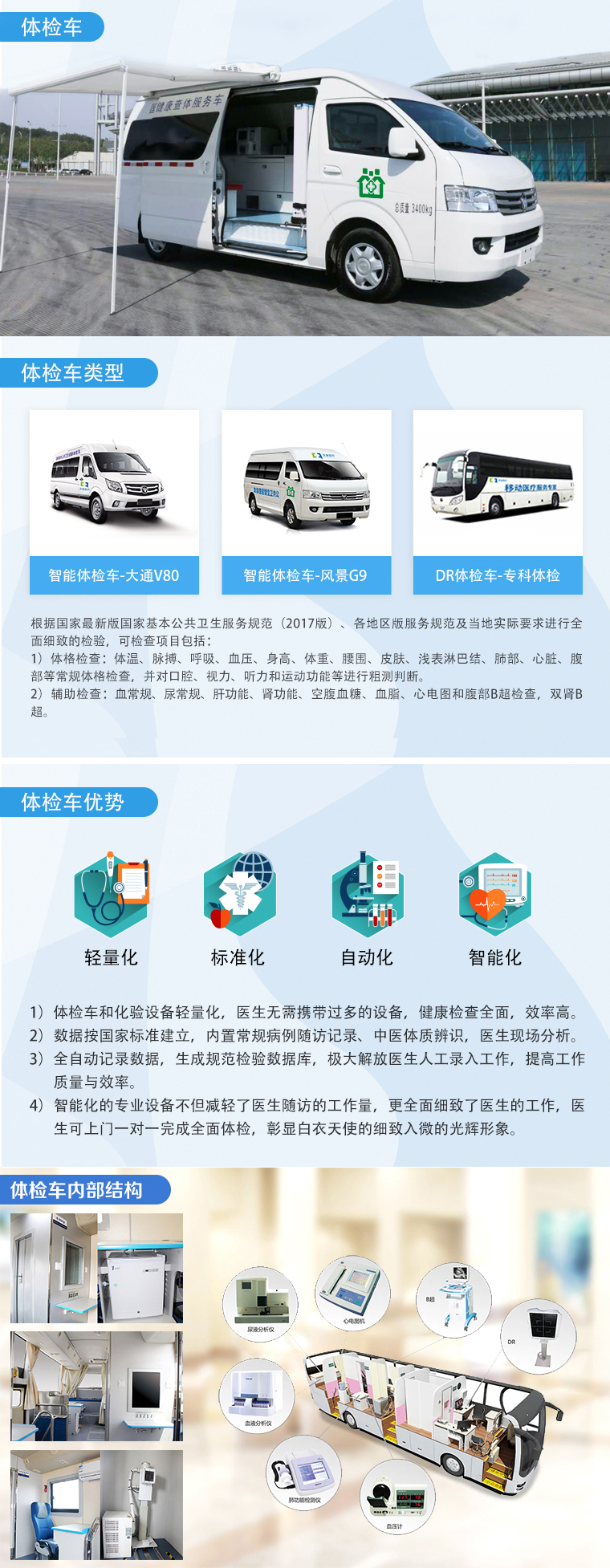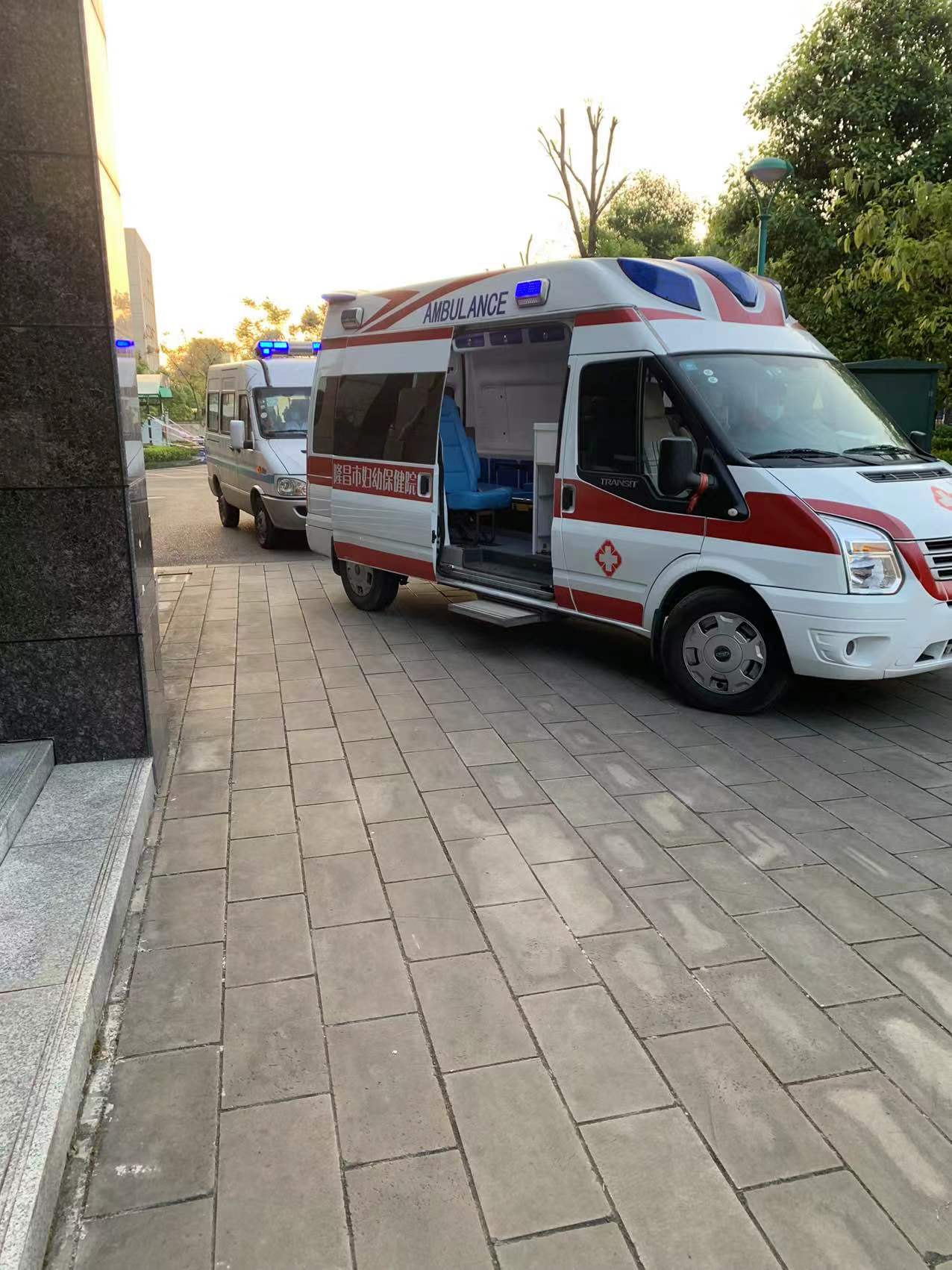實施案例
產(chǎn)品推薦
新聞推薦
醫(yī)院慢病管理系統(tǒng)的功能作用有哪些?
- 2023-06-08
- http://www.cnjinxinmweb.cn/ 原創(chuàng)
- 130
The Chronic Disease Management System is an intelligent health management platform based on the Internet and information technology, aimed at helping chronic disease patients better manage their health status, providing personalized health monitoring, health education, medication reminders, doctor consultations, and other services. The system integrates multiple data sources, such as patients' health records, medical records, lifestyle habits, etc., to achieve comprehensive and systematic chronic disease management and monitoring.
慢病管理系統(tǒng)的核心功能包括:
The core functions of the chronic disease management system include:
健康監(jiān)測與數(shù)據(jù)管理:慢病管理系統(tǒng)可以記錄和跟蹤患者的健康數(shù)據(jù),包括血壓、血糖、體重等指標的監(jiān)測。通過與醫(yī)療設備的連接和數(shù)據(jù)同步,系統(tǒng)能夠自動獲取和分析患者的健康數(shù)據(jù),并生成相應的健康報告和趨勢分析,為醫(yī)生和患者提供決策支持。
Health monitoring and data management: The chronic disease management system can record and track patients' Health data, including monitoring of blood pressure, blood sugar, weight and other indicators. Through connection and data synchronization with medical equipment, the system can automatically acquire and analyze patients' Health data, generate corresponding health reports and trend analysis, and provide decision support for doctors and patients.
用藥管理與提醒:慢病患者通常需要長期服藥,而正確的用藥是控制慢病的重要環(huán)節(jié)。慢病管理系統(tǒng)可以設置用藥提醒功能,幫助患者準時用藥,避免漏服或誤服。同時,系統(tǒng)還能提供用藥記錄和用藥指導,幫助患者了解藥物的使用方法和注意事項。
Medication management and reminder: Patients with chronic diseases usually need to take medication for a long time, and correct medication is an important link in controlling chronic diseases. The chronic disease management system can set up a medication reminder function to help patients take medication on time and avoid missed or mistaken administration. At the same time, the system can also provide medication records and medication guidance, helping patients understand the usage methods and precautions of drugs.


健康教育與指導:慢病管理系統(tǒng)提供豐富的健康教育資源和指導信息,包括飲食指導、運動建議、心理支持等?;颊呖梢酝ㄟ^系統(tǒng)學習和獲取相關知識,改善生活方式,提高健康素養(yǎng)。醫(yī)生和專業(yè)團隊也可以通過系統(tǒng)向患者提供個性化的健康教育和指導,根據(jù)患者的具體情況制定個性化的健康管理方案。
Health education and guidance: The chronic disease management system provides rich health education resources and guidance information, including dietary guidance, exercise advice, psychological support, etc. Patients can improve their lifestyle and Health literacy through systematic learning and acquisition of relevant knowledge. Doctors and professional teams can also provide personalized health education and guidance to patients through the system, and develop personalized health management plans based on the specific situation of patients.
醫(yī)生咨詢與遠程監(jiān)護:慢病管理系統(tǒng)可以實現(xiàn)醫(yī)患之間的遠程溝通和咨詢?;颊呖梢酝ㄟ^系統(tǒng)與醫(yī)生進行在線咨詢、預約復診等,減少就醫(yī)時間和成本。醫(yī)生可以根據(jù)患者的實時健康數(shù)據(jù)和反饋,進行遠程監(jiān)護和調(diào)整治療方案,提供及時的醫(yī)療指導。
Doctor consultation and remote monitoring: The chronic disease management system can achieve remote communication and consultation between doctors and patients. Patients can consult with doctors online and make appointments for follow-up visits through the system, reducing medical time and costs. Doctors can conduct remote monitoring and adjust treatment plans according to the real-time Health data and feedback of patients, and provide timely medical guidance.
慢病管理系統(tǒng)的優(yōu)勢不僅在于提供了全面的健康管理服務,更重要的是其對于慢病患者的個性化關懷和持續(xù)監(jiān)護。通過智能化的數(shù)據(jù)分析和算法,系統(tǒng)能夠根據(jù)患者的特定情況提供個性化的健康建議和管理方案,使患者能夠更好地掌控自己的健康狀態(tài),提高生活質(zhì)量。
The advantage of a chronic disease management system lies not only in providing comprehensive health management services, but also in its personalized care and continuous monitoring of chronic disease patients. Through intelligent data analysis and algorithms, the system can provide personalized health advice and management plans based on the specific situation of patients, enabling them to better control their health status and improve their quality of life.




